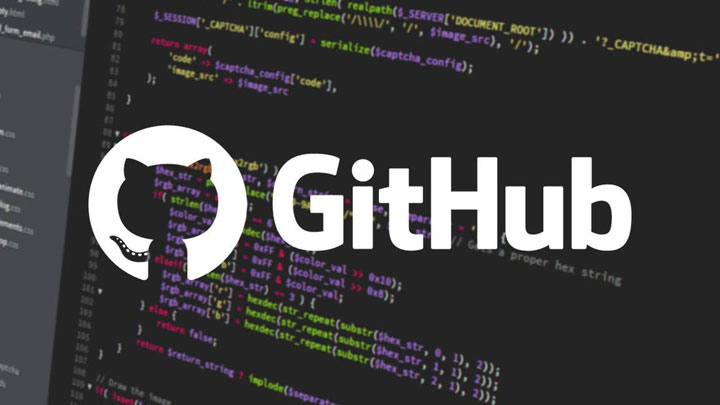GitHub: Powering the World of Collaborative Development
Date: 2025-06-28 13:44:00
Few sites have had as much of an impact on the constantly changing field of software development as GitHub. Launched in 2008, GitHub has become the central hub for developers, open-source contributors, and organizations to collaborate on code, track changes, and manage projects efficiently. It's not just a hosting service for code; GitHub represents a new way of thinking about collaboration, transparency, and the democratization of software development.

What Is GitHub?
GitHub is a web-based platform built around Git, a distributed version control system originally created by Linus Torvalds, the founder of Linux. Git enables developers to work on several branches of a project at once, roll back to earlier iterations, and monitor changes in their codebase. GitHub enhances Git by adding a sleek graphical interface, project management tools, and powerful social coding features.
With GitHub, users can host repositories (or "repos") — collections of files related to a project — and share them with others. These repositories can be public, allowing anyone to view and contribute to the code, or private, restricting access to a selected group of collaborators. For those who want to get started quickly or need pre-established profiles for testing, development, or automation, Github accounts for Sale at U2XU.com offer a convenient solution. These accounts can provide a head start for specific use cases without going through the typical account setup process.
Collaboration and Version Control
One of GitHub's most valuable features is collaborative version control. In a traditional development environment, managing multiple contributors can become chaotic, especially if developers overwrite each other's changes. By enabling users to fork repositories, create branches, and send pull requests, GitHub addresses this issue. Developers are encouraged to work on discrete features or fixes using this method without affecting the main source.
Pull requests are central to GitHub's collaboration model. A pull request is created by a developer who wishes to suggest improvements to a project. After then, team members and maintainers have the opportunity to examine the code, offer feedback, recommend enhancements, and accept or reject the modifications. This process ensures quality and consistency while fostering a culture of peer review.
Supporting Open Source and Innovation
GitHub has become synonymous with open-source software. Millions of open-source projects, from frameworks like React and Vue to operating systems like Linux, are hosted and maintained on GitHub. This openness has made it easier for developers around the world to learn, contribute, and innovate without barriers.
One of GitHub's strengths is its ability to build communities around projects. Users can "star" repositories to show support, "watch" projects for updates, and submit issues when they encounter bugs or want to request features. This creates a dynamic, interactive environment where users and developers collaborate to improve software.
Tools for Modern Development
GitHub isn't just about code — it provides a suite of tools that support every stage of the software development lifecycle. With GitHub Actions, developers can automate workflows such as testing, deployment, and integration. GitHub Issues and Projects offer Kanban-style boards and tracking systems that help teams plan, prioritize, and manage tasks.
Integration with CI/CD pipelines, IDEs like Visual Studio Code, and cloud platforms such as AWS or Azure further streamline development. Developers can even use GitHub's Codespaces, a cloud-powered development environment, to code directly from the browser without configuring anything locally.
GitHub for Education and Enterprises
Beyond individual developers and open-source communities, GitHub plays a crucial role in education and enterprise environments. GitHub Classroom and GitHub Campus Program provide students and educators with resources to teach and learn software development in a practical, real-world setting. Many computer science programs now include GitHub in their curricula, emphasizing collaboration and code literacy.
For enterprises, GitHub Enterprise offers advanced features like single sign-on, compliance tools, and security auditing. It allows large organizations to manage complex development workflows, secure intellectual property, and encourage internal collaboration across departments.
While many users create accounts for free, some developers and marketers may look for ready-made options to support testing environments, automation workflows, or bulk tasks. For such scenarios, cheap Github accounts available online can be a practical resource — especially for non-critical or short-term projects where convenience outweighs the need for personalized credentials.
Conclusion
GitHub has transformed the way software is built and shared. It empowers developers to collaborate across borders, manage code efficiently, and contribute to a global culture of innovation. Whether you're a hobbyist coder, a student learning programming, or a developer at a Fortune 500 company, GitHub provides the tools and community to help you succeed.
In the digital age, where software underpins nearly every industry, platforms like GitHub are not just tools — they're ecosystems that foster creativity, transparency, and connection. GitHub's impact on the development community will only increase as it develops further.

More than 12 years experience in game industry. One-stop game service provider for In-Game Currencies, Golds, Coins, Items, Boosting Services, and Accounts of popular games, which are supported by PC, PS4, Xbox One, Nintendo Switch, and Mobile consoles! Safe & Fast delivery, 100% satisfaction!